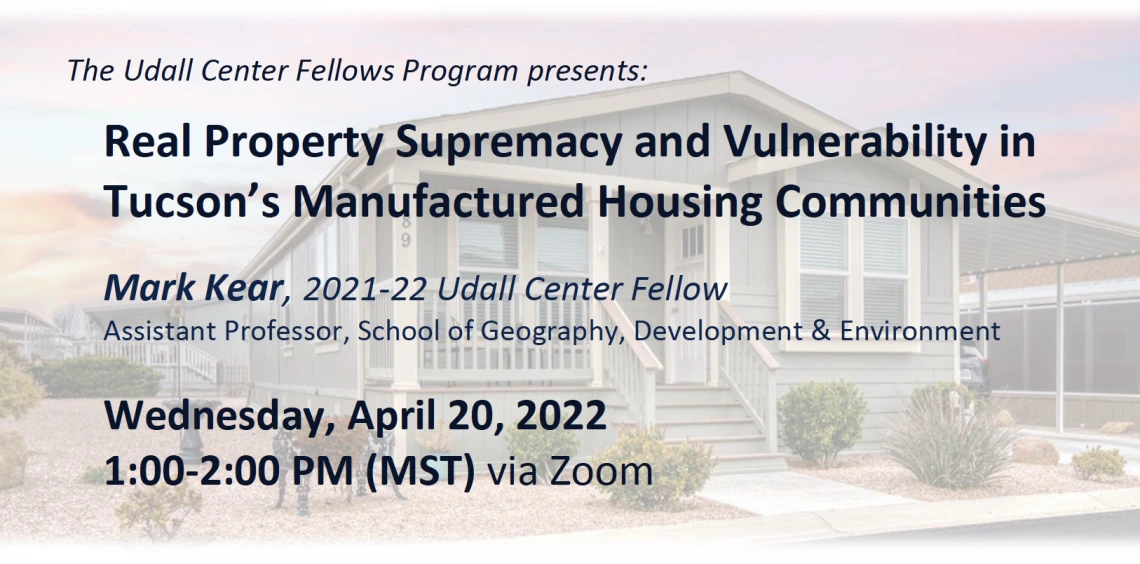Real Property Supremacy and Vulnerability in Tucson’s Manufactured Housing Communities

When
Join us on Zoom for a virtual presentation by Professor Mark Kear as he presents his work as a 2021-22 Udall Center Fellow, followed by a question-and-answer session. The Udall Center Fellows Program offers a semester off from normal teaching to allow for creative scholarship and pursuit of funds to further the Fellow’s research.
Learn more about the Udall Center Fellows Program
Mobile and manufactured housing (MH) is home to 22 million people in the United States and is the largest source of unsubsidized affordable housing in the country. It is also highly stigmatized and more likely than other housing types to be (i) exposed to hazards, (ii) structurally inadequate, and (iii) home to someone in poverty. Yet, there is nothing inherently marginal about housing built in a factory. Findings will be presented from three projects exploring this gap between the potential of MH as a source of quality, affordable housing and the lived reality for many, MH is the nexus of myriad financial, health, and environmental vulnerabilities. In the first, Dr. Kear (re)positions MH within the broader context of “real property supremacy” (the systemic elevation of real property above other forms of property as the most privileged and protected form of home). He argues that this differential treatment of personal property disadvantages MH residents in financial markets in ways that limit their ability to manage, mitigate and adapt to climate risks and related hazards. Second, Dr. Kear argues that vulnerability in MH populations is heterogeneous, and presents a novel approach for identifying, indexing, and mapping subpopulations of vulnerable MH residents. Finally, focusing on extreme heat vulnerability, he will present findings on the role of housing type in shaping a household’s ability to maintain a stable thermal environment consistent with basic health, social, and financial needs. Together these projects highlight the uneven and intersectional nature of vulnerability and the need to relate proximal causes and present conditions that people in encounter in their homes and everyday lives to broader historical trends and macro-contexts.

